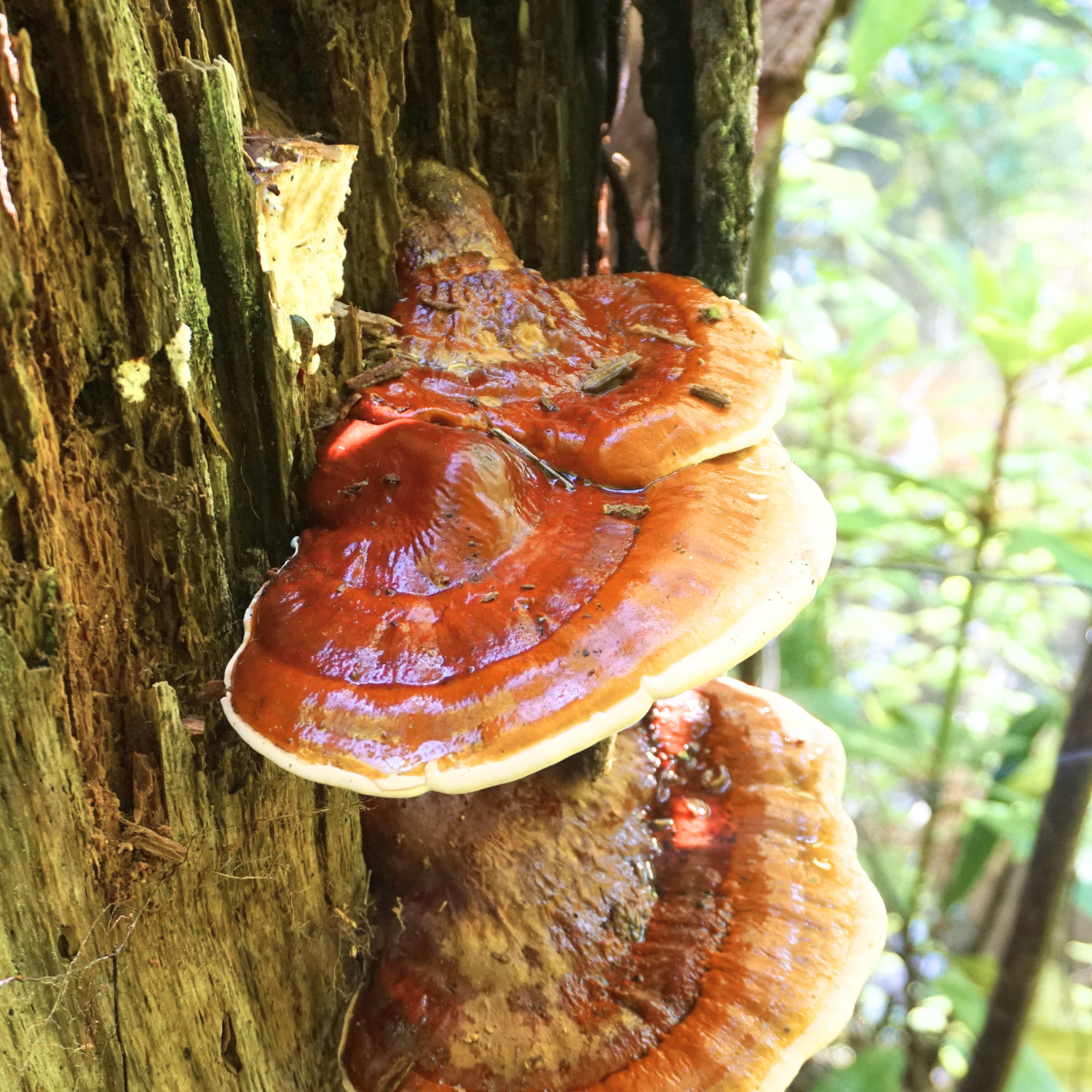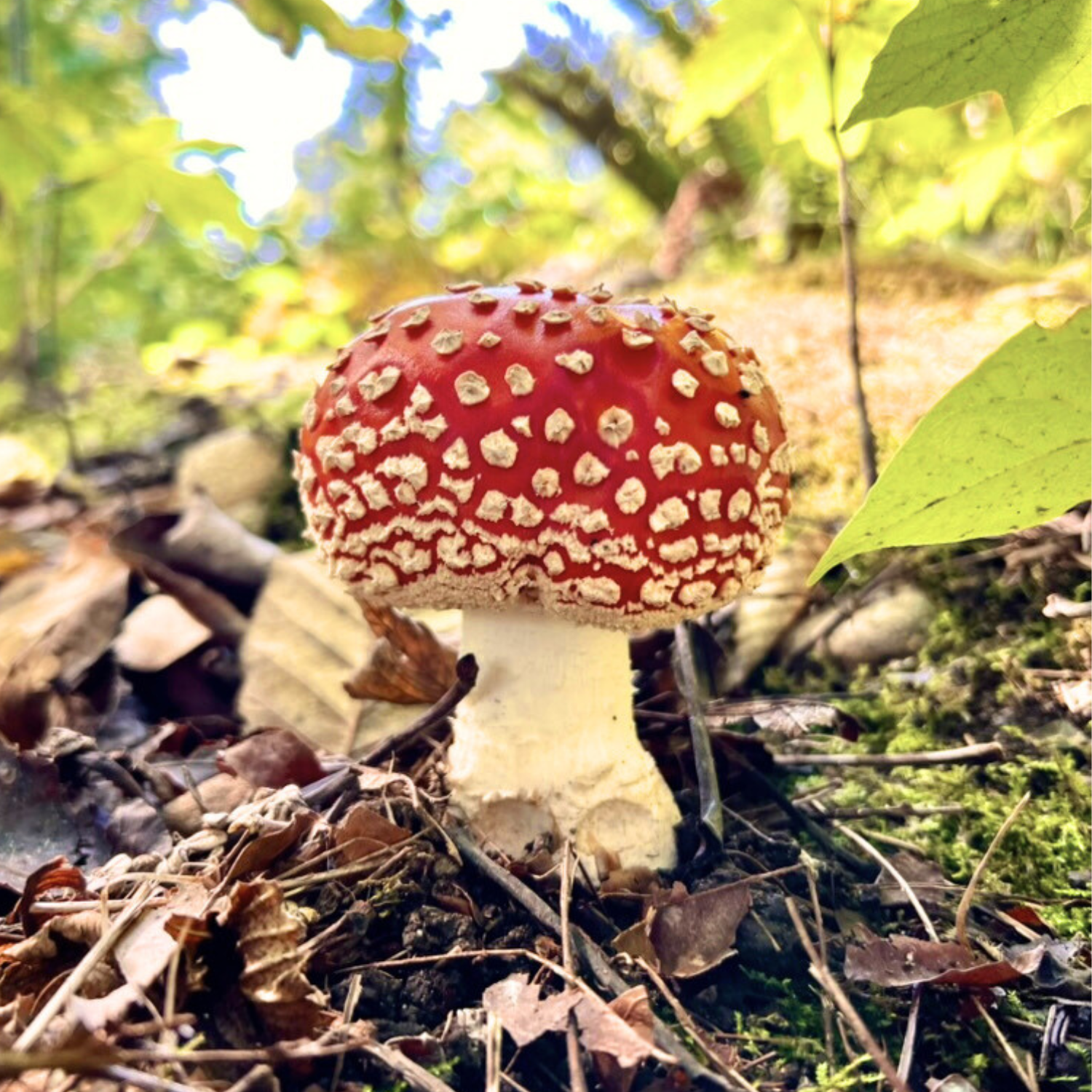Introduction
Ganoderma lucidum, the Reishi mushroom, known as the "Mushroom of Immortality," has been revered in Asian medicine for thousands of years, used both for its healing properties and as a tonic for enhancing vitality and longevity. It was sought after by emperors and sages alike, believed to bring balance to the body, mind, and spirit, and was often utilized to support immune health, reduce stress, and promote a state of calm. As a modern, natural health supplement, Reishi helps the body manage and adapt to stress, making it easier to cope with the pressures of daily life. This remarkable mushroom is also celebrated for its ability to support longer life, promote better sleep, and act as a shield against the various stressors we encounter every day.
Reishi for Balance
This mushroom can play a role in fostering balance across the body's physiological and psychological systems. Its adaptogenic qualities, documented in studies by Wachtel-Galor et al. (2012), enable it to help the body adapt to environmental and internal stress, thus maintaining a state of homeostasis. This includes its capacity to modulate the immune system, preventing it from becoming overly reactive, which is essential in reducing the incidence of inflammation and autoimmune disorders, as highlighted in the research by Lin and Zhang, (2004).
Reishi for Longevity
Longevity is another key area where Reishi shows promise, with bioactive components such as polysaccharides, triterpenes, and peptides that exhibit significant anti-aging properties (Wu et al. 2006; Wu et al. 2011). These compounds combat oxidative stress and inflammation, both of which are central to the aging process and the development of chronic diseases. The research underscores the potential of Reishi extracts to extend lifespan and improve the quality of life, demonstrating similar outcomes across various species, and suggesting potential benefits for humans as well.
Reishi for Sleep
This fungus has also garnered particular attention for its ability to enhance sleep quality. The foundational research conducted by Xiang-Yu Cui et al. (Cui et al. 2012) shows how Reishi exerts a positive influence on sleep by interacting with the body's GABAergic system. This interaction promotes a state of relaxation and facilitates deeper, more restorative sleep cycles. Such an effect is invaluable in the contemporary world, where the pace of life and prevalent stress factors contribute to widespread sleep issues. The adaptogenic nature of Reishi helps to balance the body's stress response, potentially mitigating the kind of nighttime restlessness that hampers sleep quality.
The beneficial impact of Reishi on sleep extends beyond simply inducing relaxation. By enhancing the function of the GABAergic system, Reishi helps regulate the sleep-wake cycle, supporting the body's natural circadian rhythms. This regulation is crucial for achieving a consistent and rejuvenating sleep pattern, which, in turn, can significantly improve overall well-being. The importance of quality sleep in maintaining health, mood, and cognitive function cannot be overstated, making Reishi's role in promoting good sleep practices especially relevant.
Reishi for Stress
Reishi's impact on the HPA axis and its ability to modulate key neurotransmitters provide a solid foundation for its use as a natural stress management (Panossian and Wikman 2010). This adaptogenic mushroom aids in the regulation of serotonin and dopamine, neurotransmitters directly involved in stress and mood regulation, thereby offering a holistic approach to managing daily stress.
Other Benefits of Reishi
Further studies have significantly broadened our understanding of Reishi's potential in health and wellness. Notably, the work of Bishop et al. (Bishop et al. 2015) has been instrumental in bringing to light the immune-modulating effects of Reishi. This research underscores the mushroom's ability to balance the immune system, enhancing its efficacy in fighting infections while simultaneously preventing overactivation that could lead to autoimmune disorders. Similarly, the antioxidant properties of Reishi, detailed by Li et al. (Lin and Zhang 2004), demonstrate its capacity to combat oxidative stress within the body, a key factor in aging and many chronic diseases.
Reishi's health benefits also extend into the realm of oncology. Lin and Zhang (Lin and Zhang 2004) have provided valuable insights into its antitumor properties. Their research supports the potential use of Reishi as an adjunctive treatment in cancer therapy, offering hope for enhanced treatment outcomes through natural means. Furthermore, the cardiovascular benefits of Reishi, as investigated by Zhang et al. (Zhang et al. 2016) highlight the mushroom's positive effects on heart health, including blood pressure regulation and cholesterol management. This is particularly significant given the global burden of cardiovascular diseases.
Conclusion
Scientific research on the Reishi mushroom provides evidence for its broad spectrum of benefits in the realm of health and wellness. Its remarkable ability to support immune system health, promote longevity, enhance sleep quality, and assist in stress management positions Reishi as an invaluable natural health product (NHP). For individuals dedicated to nurturing their health in a comprehensive, natural way, Reishi offers a myriad of advantages that align with the pursuit of a holistic lifestyle.
Incorporating Reishi into your daily health routine isn't just about adding a supplement; it's about taking a significant step toward harmonizing your body and mind. This adaptogenic mushroom has been celebrated for its capacity to help the body find balance amidst the challenges of modern living. Whether you aim to fortify your body's defences, seek to extend the vibrant years of your life, desire more peaceful and restorative sleep, or need a natural way to deal with the pressures of daily stress, Reishi emerges as a powerful, natural companion in your health and wellness journey.
Engaging with the myriad benefits of Reishi mushroom can lead to profound changes in your well-being. This natural marvel is known not only for its potential to improve physical health but also for its positive impact on mental and emotional balance. By incorporating Reishi into your daily regimen, you're not just taking a step towards better health; you're embracing a path towards a more balanced and enriched life.
We encourage you to explore the enriching benefits of Reishi for yourself. Make this adaptogenic mushroom a part of your everyday wellness practice and witness the transformative impact it can have on your overall health and vitality. Dive into the world of Reishi and begin your journey to a more balanced, healthful existence. Visit our website for more information on how to get started and take the first step towards embracing a natural, holistic approach to your well-being today.



